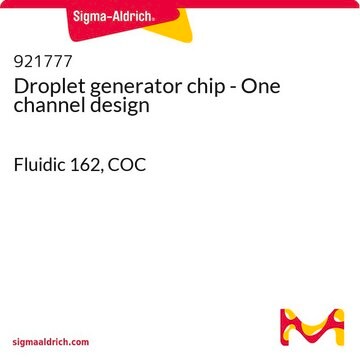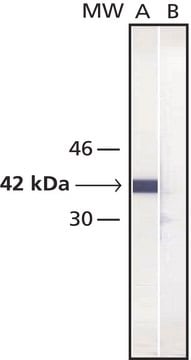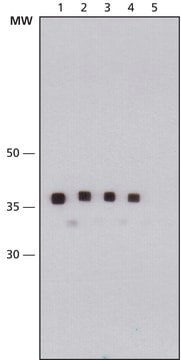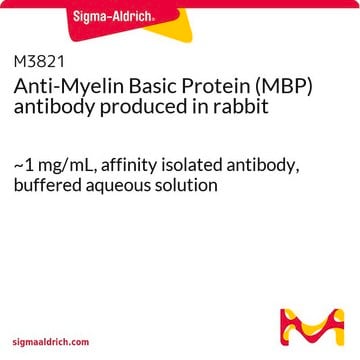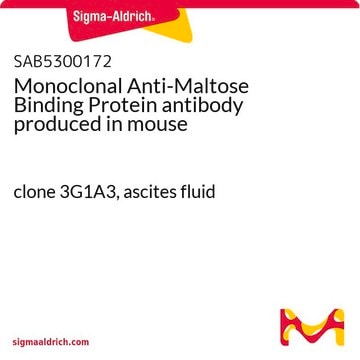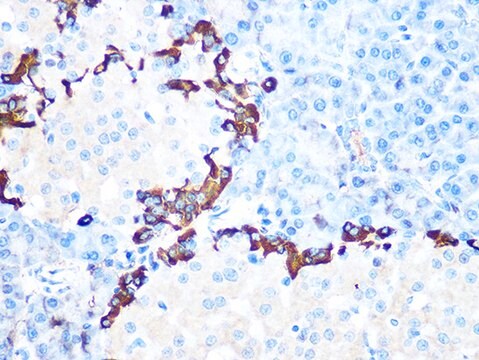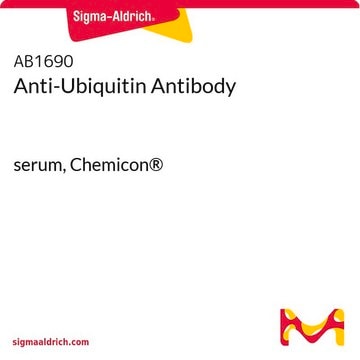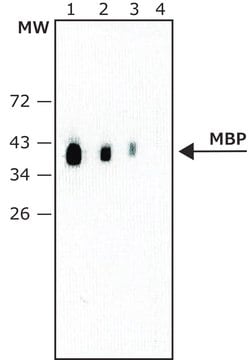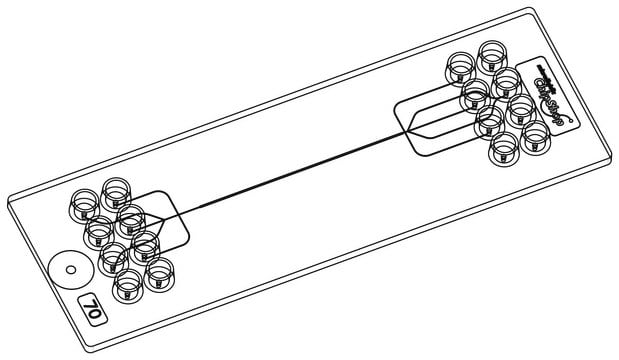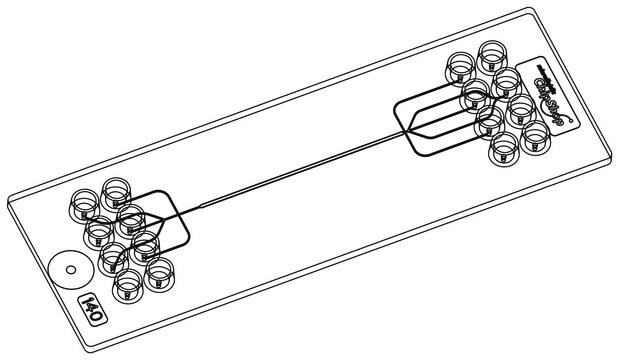AB3596
Anti-Maltose Binding Protein Antibody
serum, Chemicon®
Sinónimos:
MBP
About This Item
Productos recomendados
biological source
rabbit
Quality Level
antibody form
serum
antibody product type
primary antibodies
clone
polyclonal
species reactivity
bacteria
manufacturer/tradename
Chemicon®
technique(s)
immunoprecipitation (IP): suitable
western blot: suitable
UniProt accession no.
shipped in
dry ice
target post-translational modification
unmodified
Gene Information
Escherichia coli K12 ... Male(948538)
Specificity
Immunogen
Application
Immunoprecipitaiton
Optimal working dilutions must be determined by the end user.
Epitope Tags & General Use
Epitope Tags
Physical form
Storage and Stability
During shipment, small volumes of product will occasionally become entrapped in the seal of the product vial. For products with volumes of 200μL or less, we recommend gently tapping the vial on a hard surface or briefly centrifuging the vial in a tabletop centrifuge to dislodge any liquid in the container′s cap.
Legal Information
Disclaimer
¿No encuentra el producto adecuado?
Pruebe nuestro Herramienta de selección de productos.
Storage Class
10 - Combustible liquids
wgk_germany
WGK 1
Certificados de análisis (COA)
Busque Certificados de análisis (COA) introduciendo el número de lote del producto. Los números de lote se encuentran en la etiqueta del producto después de las palabras «Lot» o «Batch»
¿Ya tiene este producto?
Encuentre la documentación para los productos que ha comprado recientemente en la Biblioteca de documentos.
Nuestro equipo de científicos tiene experiencia en todas las áreas de investigación: Ciencias de la vida, Ciencia de los materiales, Síntesis química, Cromatografía, Analítica y muchas otras.
Póngase en contacto con el Servicio técnico